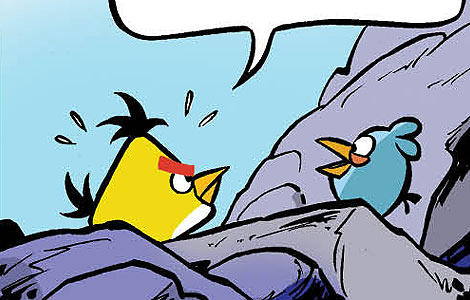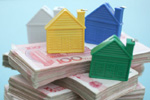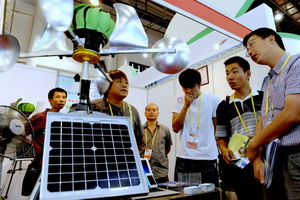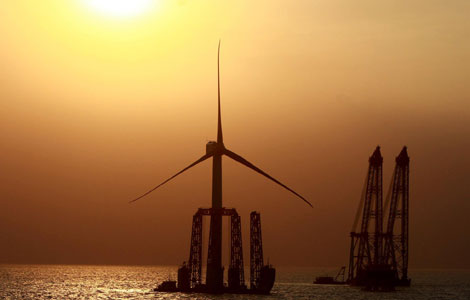Price index softens for first time in several months
Updated: 2011-09-10 09:06
By Hu Yuanyuan (China Daily)
|
|||||||||||
|
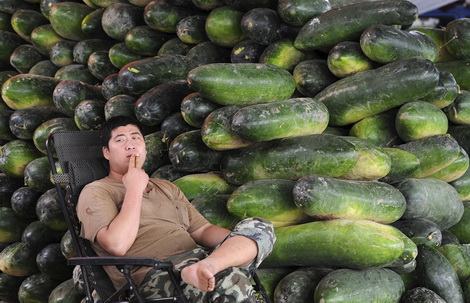 A vendor smokes a cigarette as he sits in front of piles of Chinese watermelons at a market in Hefei, Anhui province, on Friday. China's CPI, a main gauge of inflation, slowed to 6.2 percent in August.[Photo/Reuters] |
BEIJING - China's inflation pulled back in August from a 37-month high, giving the government scope to hold off on further tightening of monetary policies in the face of a slowing global economy.
The Consumer Price Index (CPI), the key gauge of inflation, rose 6.2 percent year-on-year, cooling from a three-year high of 6.5 percent in July, the National Bureau of Statistics (NBS) said on Friday.
"The modest easing in August was led by the slower pace of the rise in food prices. And the pace of gain in non-food CPI stayed modest," JP Morgan said in a research note.
Food prices, which usually contribute the most to the CPI hike, increased 13.4 percent in August, slower than the 14.8 percent in July, the NBS said. Non-food inflation increased to 3 percent, compared to 2.9 percent in July. In seasonal adjustments, the pace of gain in non-food CPI had been steady.
In the non-food CPI, the housing component had been easing for the past two months, with a decline of 0.2 percent month-on-month in August and July respectively, NBS statistics show.
In addition, the sequential trend in Producer Price Index (PPI) continued to ease in August, with a fall of 0.1 percent month-on-month, suggesting the easing of pipeline inflation pressure in the next few months.
"As the July CPI figure had likely marked the peak in the latest inflation upturn, the headline CPI inflation rate is likely to moderately further going ahead, especially going into the fourth quarter," according to JP Morgan.
Lian Ping, chief economist at the Bank of Communications, said the dip in August is largely due to favorable comparisons against a year ago, and the figure will continue to slide further in September.
Such a trend means repeated interest rate hikes and other curbs meant to chill the overheated economy are taking hold, giving the government greater leeway for policies aimed at keeping economic growth on track when the global economy is slowing down.
China's central bank has raised interest rates five times and lifted banks' reserve requirement ratios (RRR) nine times since October.
Though these measures have cooled credit growth, one of the root causes of inflation, they have also burdened many small and medium enterprises.
"The central bank is expected to take a prudently balanced monetary policy in the coming months," said Lian.
According to a report from Nomura Securities, the August data revealed on Friday adds further credence to the notion that China is experiencing a soft economic landing.
Industrial output rose 13.5 percent in August from a year earlier, slowing from 14 percent in July. Retail sales growth eased to 17 percent from July's 17.2 percent.
Fixed-asset investment, a primary driver of the country's economic growth, rose 25 percent in the January-August period from a year earlier. That also marked moderation from 25.4 percent in the first seven months.
"It also reinforces our view that monetary policy will remain in a 'wait-and-see' mode for the rest of this year," said the research note.
For Zuo Xiaolei, chief economist at China Galaxy Securities Co Ltd, it is still too early to call for monetary easing, such as a system-wide RRR cut, rate cut or a bigger loan quota.
Premier Wen Jiabao, quoted in a recent article in Qiushi magazine, reiterated that stabilizing prices is a top priority for the government this year.
Robert Zoellick, president of the World Bank, also said on Monday that inflation was "the most important" issue for China, but he believed that "the Chinese government has already started to take measures and is moving in the right direction".


